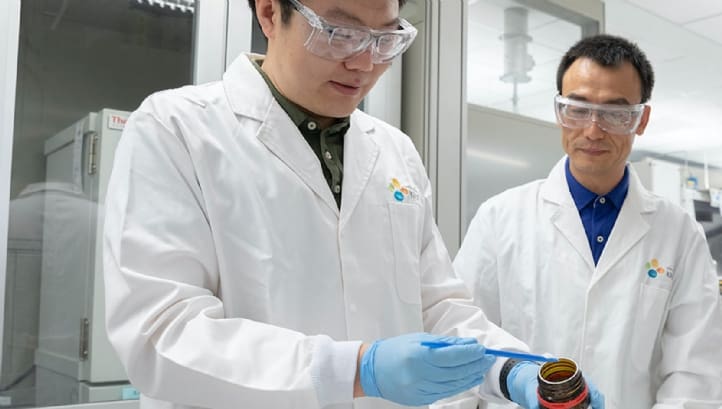King Abdullah University of Science and Technology has developed a hydrogel that absorbs water at night-time, and releases it when warmed by sunlight during the day.
Associate professor of environmental science and engineering, Peng Wang, and his team at the Water Desalination and Reuse Centre, developed a prototype device using calcium chloride.
The salt was incorporated into a hydrogel polymer to prevent it from liquifying when it absorbs water. The prototype uses carbon nanotubes, which efficiently absorb sunlight and convert it into heat, to enable captured water to be released during the day.
The prototype used 35 grams of the hydrogel, and captured 37 grams of water during a night when relative humidity was 60 per cent. The next day, after two-and-a-half hours of natural sunlight, the water was released and collected in the device.
“The hydrogel’s notable aspects are its high performance and low cost. If the prototype were scaled up to produce three litres of water a day – the minimum required for an adult – the material cost of the adsorbent hydrogel would be as low as $0.5 a day,” said Renyan Li, a PhD student in Wang’s team.
The paper, ‘Hybrid Hydrogel with High Water Vapor Harvesting Capacity for Deployable Solar-Driven Atmospheric Water Generator’, was published in Environmental Science & Technology, a journal of the American Chemical Society, on 7 September 2018.
